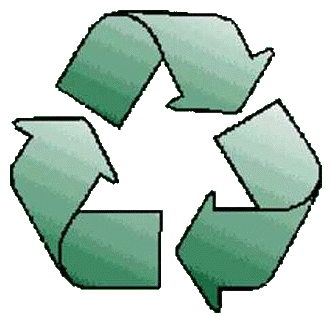Sustainable Living
Leaving Small Footprints
Sustainability is an idea and a movement that focuses on meeting the needs of those of us living in the present without compromising the ability of future generations to meet their own needs. Living sustainably is about making smart choices about the simple things in your life. Many times, it's the simple choices we make that can make the most difference...recycling with the blue container instead of just throwing the plastic bottle away, choosing less toxic alternative products to clean your home, ridding your life of junk mail, learning to compost, choosing to shop in local stores and buy locally produced products that reduce carbons and emissions in the transportation of products.
Donating Clothing & Household Goods
Decluttering our closets and homes can be a rewarding activity. Many people commit to simplifying their lives after spending many years consuming more than they need to live comfortably. Donating items that no longer serve us but may be useful to others is a great way to reduce what we send to the landfill. Our landfill in the Salinas Valley asks residents not to put clothing and textiles in the trash because they add to greenhouse gas production when they decompose.
We often get questions about what can be donated—especially when it comes to clothing. Click here to learn more about best practices when making clothing and textile donations and all of the convenient options and locations available to help you with your task.
The New Word on Plastics
Plastic film, plastic bags, and plastic packaging have become a large part of our daily lives. Many plastic items are labeled with recycling numbers and the chasing arrow of recycling. These numbers were not designed to tell consumers that they can recycle these products but were created by packaging companies to indicate the type of material used to make the packaging. Some items with these symbols are technically recyclable; however, recycling markets have changed drastically over recent years. Many of the recycling markets that would once take these items have now strictly limited what they will take and have placed strict conditions on the cleanliness of recycled materials. Tri-Cities Disposal & Recycling customers can only place plastics numbered 1, 2, and 5 in the recycling cart. This means that now, more than ever, we all must work to reduce our consumption of single-use materials and do better to reuse everything we can.
While many crafty websites promote the upcycling of single-use plastics, some people don’t have the time or the motivation for these activities. So, how can you be part of the solution? We suggest you consider ways to reuse single-use plastics to replace those you might otherwise purchase. Here are some simple ideas to get you on that path:
Bread, produce & tortilla bags: Don’t purchase expensive rolls of pet waste collection bags. Instead, give these small bags one more use before sending them to the landfill by using them to collect waste from the kitty litter box. If you are a walker, these bags are great for picking up after your dog and picking up the little pieces of litter you find along the way.
Laundry & dry cleaning bags: First, ask your dry cleaner if they will consider not bagging your laundry. If you end up with these bags, save them as trash can liners. Tie a knot in the open bottom of the bag and use it to line your kitchen and bathroom waste bins (this can save you money on purchasing trash can liners).
Bags that come with a purchase: Use large bags to collect clothing and other items you donate to charity. Save heavy plastic packaging that comes with new linens and bed sheets. You can repackage the old set you are replacing and send it along for a donation to a charity or pet rescue organization (they are always looking for old top sheets and towels to assist them in caring for animals).
Plastic food containers: Don’t spend money on expensive plastic wrap or plastic storage containers! Containers that once contained food items such as cottage cheese, margarine, and sour cream can be washed and saved to store other items in your refrigerator. The same goes for glass jars. A piece of tape and a permanent marker can help here. Think about rinsing these out and storing a few in a cabinet when you want to send dinner guests home with those delicious leftovers.
Gardening & Composting
Whether you grow flowers, fruits, vegetables, or fruit trees at home, gardening can have many physical and mental health benefits. Nothing tastes better than the food you grow for yourself. No flower is more beautiful than the one you cut yourself.
Whether you are an experienced expert or an aspiring first-timer, adding home composting to your garden can up your game, help you create nutrient-rich soil, and turn your food waste into a valuable product that is anything but “waste.”
Salinas Valley Recycles hosts free monthly composting and vermicomposting (composting with worms) workshops. Click here to learn more about these events presented by their in-house experts. You can also find their virtual composting workshop at the link.
Quick Tips to Start a Home Compost Pile
If you are new to composting or have already started composting and want to learn some tips and tricks from an expert, view this short four-minute video to get started. Building a worm composting system from plastic storage containers (see diagram below) can quickly and compactly turn food scraps into beautiful fertilizer for your plants and garden.





